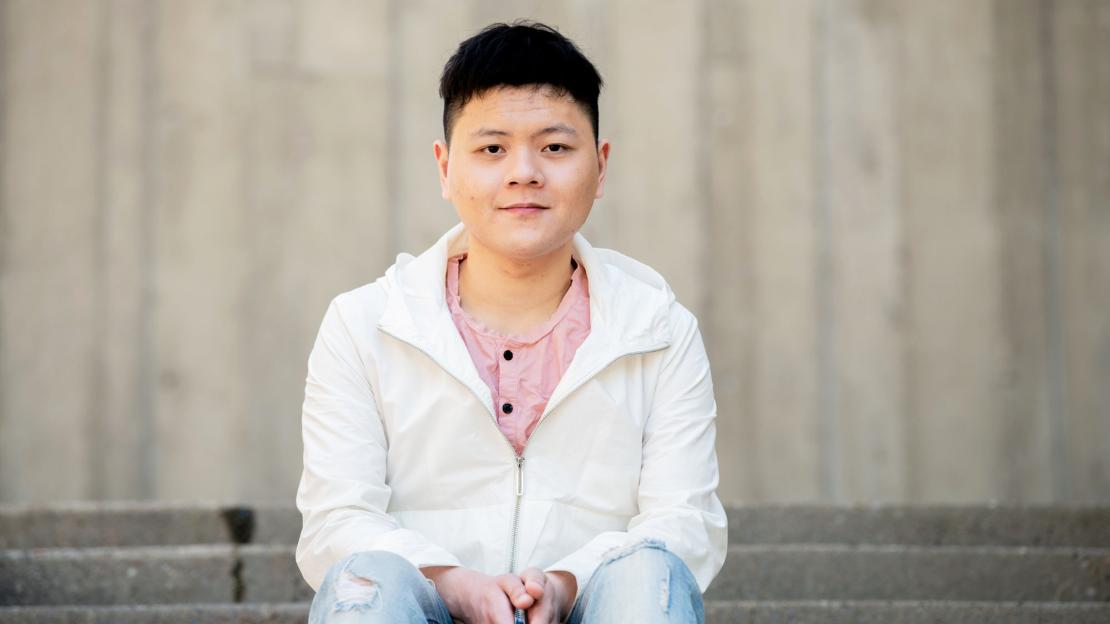Jiali Pan (BSc ’19) came to U of T Scarborough — and Canada — through the Green Path Program from China nearly four years ago. He had to adapt to a new country and learning environment.
He’s now graduating with the highest GPA among science students at U of T.
“I’m very honoured to be selected as the recipient,” says Pan. “I’ve put in a lot of effort in my studies.”
Pan is graduating from the statistics program, quantitative finance stream at U of T Scarborough. He is the recipient of the Governor General Silver Medal, which celebrates students with the highest academic standing at U of T.
Three silver medal awards are distributed each year, one to the highest-ranking student in science, the arts and engineering.
Here are Pan’s top three pieces of advice for students who have their sights on getting a high GPA.
Take time to listen
Pan is actually not a fan of lecture notes. Instead of scrambling to write everything from a lecture side, he suggests paying attention to what the lecturer is saying.
“Follow what they are saying and if you can focus on what they are saying, it’s more efficient than just note taking.”
After lectures, he also would borrow notes from classmates and write summaries of the lecture.
Side tip: Making a schedule is a great way to prioritize assignments and any upcoming tests. But Pan says that it’s OK if you don’t follow them exactly. He utilized his time, and actually spent only two to three hours studying per day.
Make your own practice questions
Many students have been there — searching for old exams online to get a sense of what it will look like. But knowing how to solve those questions doesn’t necessarily prepare you all that well for an exam — a brand new test.
To make sure you truly understand the content, Pan says you should make your own questions to practice and solve.
“If you can make some questions early on and resolve them yourself, it will be a lot more helpful than using practice questions from old tests.”
Side tip: Teach someone else. Pan has been a teaching assistant for the past three years in the Department of Computer Science Mathematics and Statistics, and has taught about 15 tutorials. Teaching concepts in a clear way has helped him gain a stronger understanding of course content.
“If you hold the test to its highest level of difficulty, you’ll be a lot more confident in the test room,” says Pan.
Go beyond the classroom
If you find a topic that really interests you, don’t be afraid to go beyond course material to find out more. Pan also suggests looking up how other universities (such as MIT) are teaching course material.
Side tip for international students: Pan says that the first year is a big transition and students should know that they can take it slow. That may mean taking a lighter course load in your first year as you get used to new environments and teaching styles.
“I think university life can be a transition,” says Pan. “Originally I was in other subjects before I picked my program. I hope everyone can find their eventual goal and realize their career path with little adjustments at a time.”
